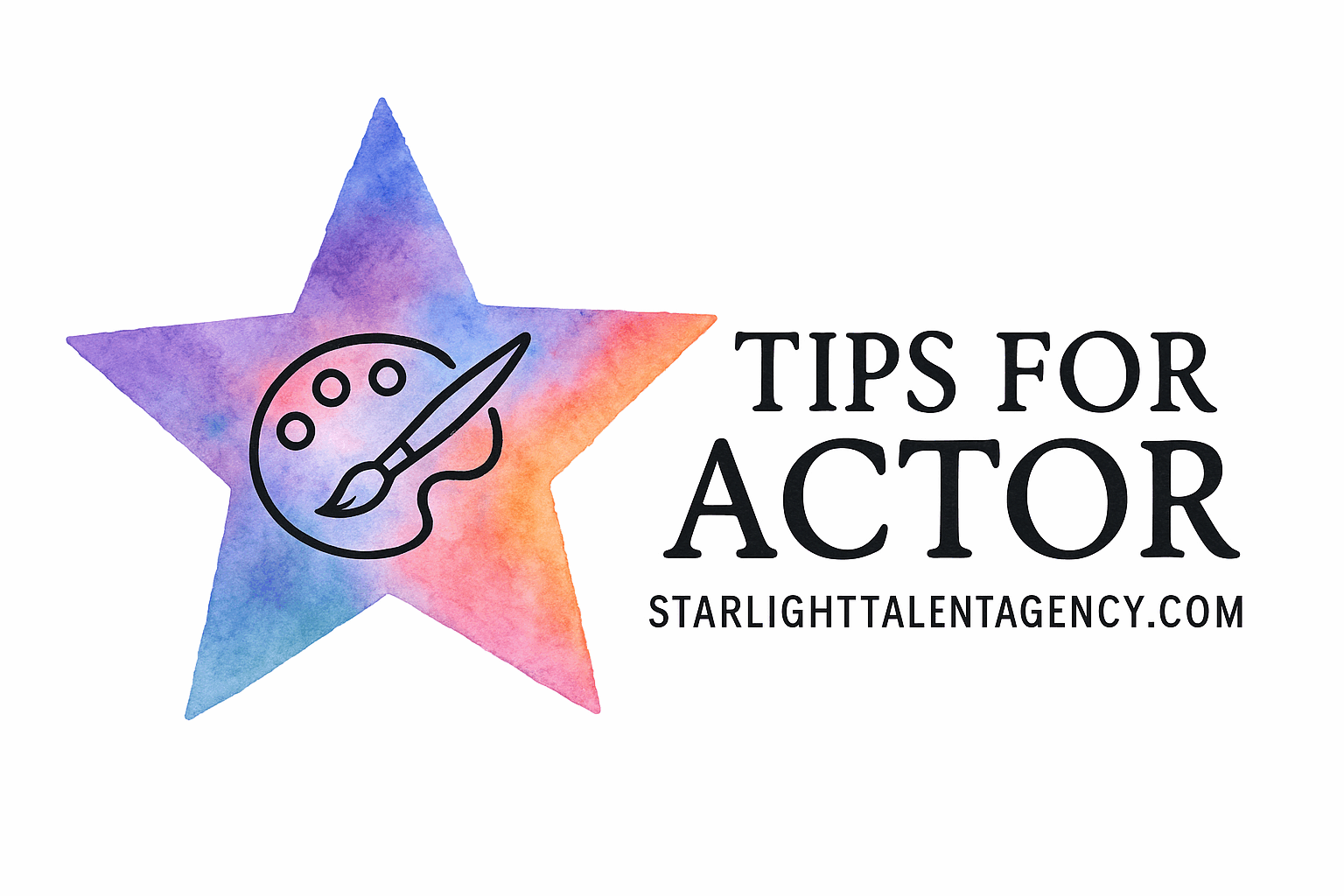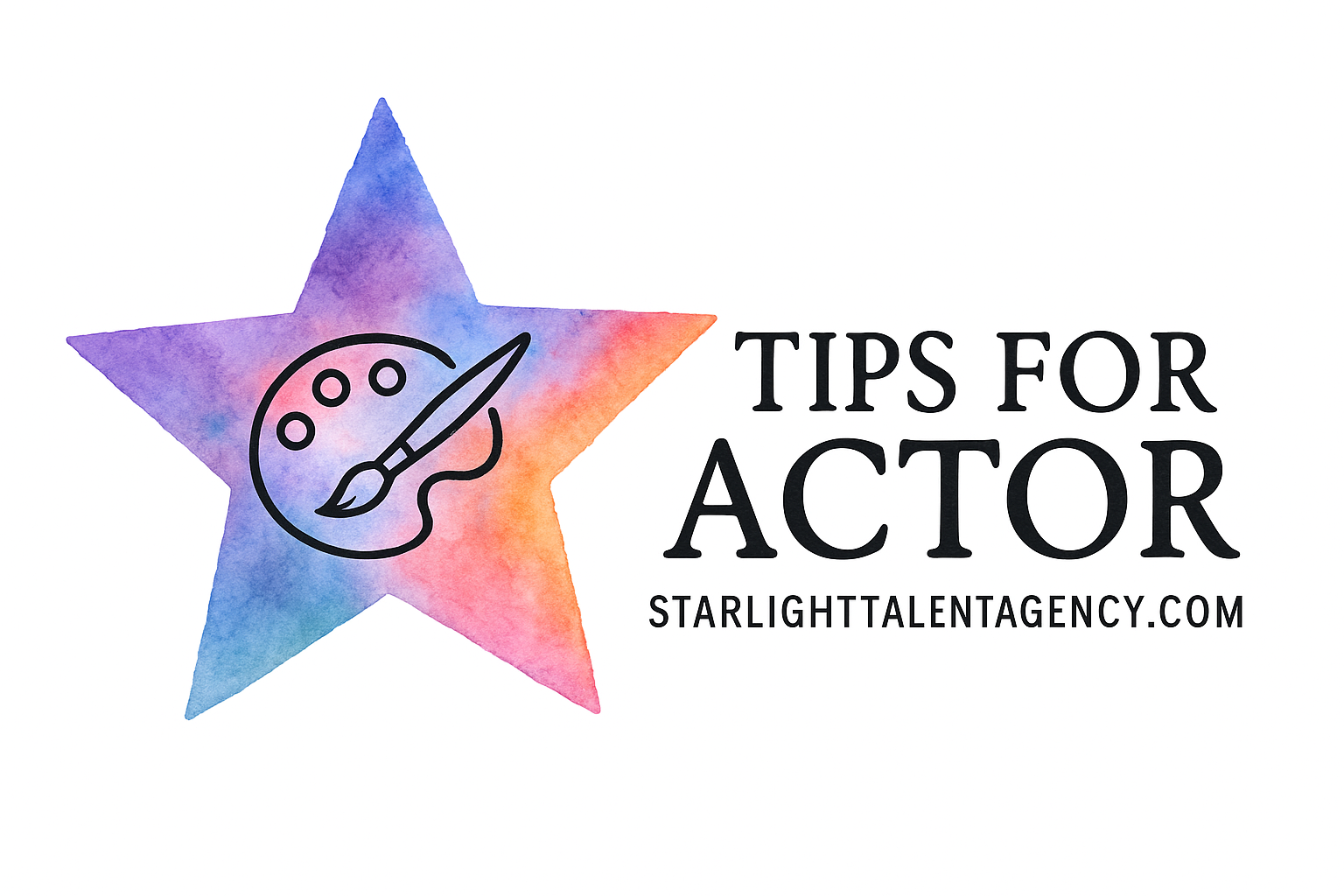Introduction
If you’ve ever walked out of an audition wondering what really happened — or why some roles seem to click while others flop — then audition tracking might be your new best friend.
It’s not just about writing down audition dates or role names. It’s about analyzing patterns, behaviors, and growth to become a smarter, more confident performer.
Think of your audition tracker as your acting career diary — a backstage record of what you’re learning and where you’re heading. With proper tracking, you can turn each opportunity into a step forward rather than another mystery.
If you’re new to the process, check out the Audition Preparation Basics guide from Starlight Talent Agency for foundational tips before diving deeper.
Why Audition Tracking Matters for Every Actor
Audition tracking is more than organization — it’s about career awareness. You learn not just what you did but why it worked or didn’t.
Turning Rejection Into Reflection
Rejection doesn’t mean failure; it means data. Each “no” holds a clue — perhaps you didn’t match the role type or your energy didn’t land. By tracking feedback and experiences, you transform rejection into reflection.
You can also explore how to handle this mentally by reading Acting Rejection — a Starlight resource on staying resilient between auditions.
Building Consistency Through Tracking
Consistency creates confidence. Logging your auditions — especially self-tapes — reveals trends in your acting flexibility and confidence. Over time, you’ll see which approaches bring the best results and where adjustments are needed.
The article on Acting Confidence explains how consistent habits lead to stronger performances.
How to Set Up an Actor Audition Tracker
Before diving into the 14 coaching tips, let’s establish how to structure your tracking system.
Digital vs. Physical Tracking Systems
You can use a simple notebook, but digital tools (like Google Sheets, Notion, or Airtable) offer easier filtering and data analysis. They’re especially handy when tracking self-tape auditions, callbacks, and casting directors.
If you’re focusing on digital auditions, check out Self-Tape Mastery to refine your setup and integrate its lessons into your tracker.
What to Include in Your Audition Log
An effective audition tracker should include:
- Date and role
- Casting director and agency
- Project type (film, TV, stage, etc.)
- Wardrobe and accent used
- Emotional readiness
- Feedback from coaches or directors
- Callback status
- Personal reflection
Need guidance on character creation? Read Character Development — it helps align your preparation with your audition goals.

Coaching Tip #1: Define Your Audition Goals
Start every month with clear, measurable goals.
Do you want to book three auditions for dramatic roles? Or perhaps refine your comedic timing? Setting defined targets gives your tracker direction and boosts motivation.
For guidance on setting career-oriented objectives, visit Career Growth.
Coaching Tip #2: Record Every Detail
Details make patterns visible. Write down everything — location, lighting, energy level, even your breakfast that day. It might sound obsessive, but trends emerge only when you have data to compare.
If you’re struggling with preparation habits, review Acting Prep for structure and consistency tips.
Coaching Tip #3: Review Your Performance Videos
Save and review every self-tape audition. Play them back a few days later and analyze what worked: body movement, tone, pacing, facial expression.
Compare your approach with insights from On-Camera Acting to refine your delivery for digital auditions.
Coaching Tip #4: Note Casting Director Preferences
Every casting director has a personal taste. Some want natural performances; others prefer bold choices. Keeping a log of their preferences helps tailor your future submissions.
This kind of customization is part of advanced audition skills, which you can explore at Advanced Audition Skills.
Coaching Tip #5: Track Emotional Readiness
Emotional awareness is key. How did you feel before the audition — confident, nervous, tired? Track those moods. You’ll discover which emotional states lead to your best performances.
You can also apply warm-up exercises from Warm-Up Exercises to boost focus and calm before each session.
Coaching Tip #6: Record Feedback from Coaches
Every note from a coach or mentor is a gem. Whether it’s advice about body acting, script analysis, or scene work, log their feedback. It becomes a personal acting guidebook.
See Coaching Tips for Actor for more ways to maximize your training sessions.
Coaching Tip #7: Analyze Patterns in Success
Look for common factors in your best auditions. Maybe you nailed roles that required a specific dialect, or your best tapes were filmed in natural light. Identifying these trends helps you recreate success more intentionally.
You can learn more about dialect training at Dialect Training.
Coaching Tip #8: Keep Tabs on Self-Tape Quality
Self-taping is an art form. Track your lighting, audio clarity, camera angle, and backdrop. When you find a setup that works, replicate it.
For setup optimization, check out:
These guides ensure you’re presenting your best visual self.
Coaching Tip #9: Monitor Your Wardrobe Choices
Wardrobe communicates character before your first line. Keep photos of what you wore for each role. This helps you avoid repetition and refine your acting wardrobe style.
You can explore more at Acting Wardrobe.
Coaching Tip #10: Include Physical and Vocal Warm-Ups
Your body and voice are your instruments. Record which warm-ups you used and how they affected your confidence. You’ll quickly learn which routines prepare you best for different genres.
Explore Stage Gestures for physical performance enhancement.
Coaching Tip #11: Track Follow-Ups and Callbacks
Callbacks are gold. Log who contacted you, what was requested, and how you adjusted for the second round. This builds a historical record that helps with future auditions from the same team.
Learn how to handle taking direction effectively with Taking Direction.
Coaching Tip #12: Sync Your Tracker with Career Goals
Use your tracker as a mirror for your career mindset. Are you auditioning for roles that align with your long-term vision? Adjust accordingly.
See Career Mindset for strategies on aligning daily efforts with big-picture ambitions.
Coaching Tip #13: Evaluate Networking Opportunities
Every audition is a networking moment. Track casting directors, assistants, and producers you’ve met. Maintaining professional connections builds long-term opportunities.
Balance this with advice from Work Balance to sustain a healthy, creative rhythm.
Coaching Tip #14: Review and Adjust Monthly
Once a month, analyze your tracker. What improved? What stagnated? Did your prep time or confidence shift? Use the insights to adjust strategies.
For help staying consistent, see Acting Schedule.
Common Mistakes Actors Make in Audition Tracking
Ignoring Small Wins
Small progress matters. Maybe your accent landed perfectly, or your scene partner chemistry improved. Track and celebrate these — they build momentum.
Focusing Only on Results
Booking a role is great, but learning from auditions is greater. Every experience is part of your scene work evolution — read more at Scene Work.
Tools and Templates for Effective Audition Tracking
Apps and Digital Spreadsheets
Use templates in Google Sheets or Airtable. Columns like “Feedback,” “Emotional State,” and “Outcome” make analysis easy. You can even link them with reminders for future submissions.
Using Starlight Talent Agency Resources
For ongoing growth, explore:
- Audition Preparation Basics
- Advanced Audition Skills
- Character Development
- Self-Tape Mastery
- Career Growth
Integrate these into your tracker as learning categories for continuous development.
Conclusion
Audition tracking isn’t just paperwork — it’s performance intelligence. It empowers you to act strategically, improve faster, and stay emotionally grounded through the ups and downs of the industry.
With the help of Starlight Talent Agency’s resources, you can elevate your craft and make each audition a step closer to mastery.
Remember: every role teaches you something. Every entry in your tracker is another page in your success story. Start tracking today — your future self will thank you.
FAQs
1. What is the best way to track auditions?
Use a digital spreadsheet or a professional app with sections for feedback, setup, and emotional notes.
2. How often should I update my tracker?
After every audition — while details are fresh.
3. Can tracking really improve my auditions?
Absolutely. It gives you insight into what works best for you — from lighting to emotional readiness.
4. Should I track self-tapes differently?
Yes. Include fields for camera setup, lighting, and wardrobe. Learn more in Self-Tape Mastery.
5. How can I handle audition rejection better?
By logging reflections and reviewing lessons. Visit Acting Rejection for emotional strategies.
6. What should I include in feedback notes?
Add anything from vocal notes to energy levels. See Coaching Tips for Actor for professional insight.
7. Where can I find more acting career advice?
Head to Career Growth for guidance on long-term success.

